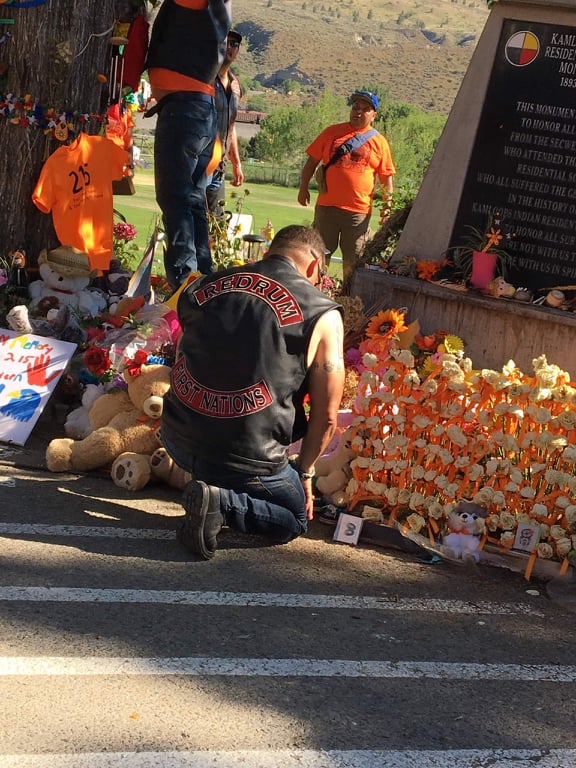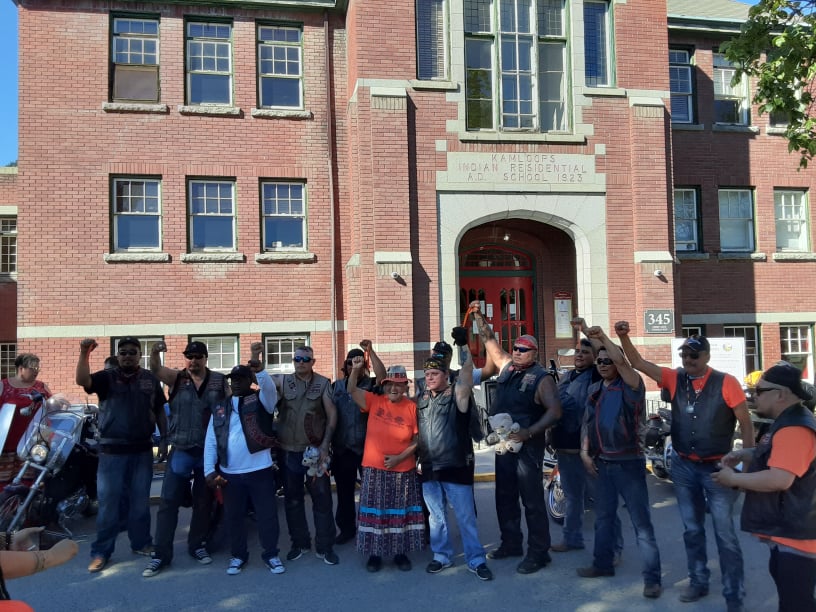
First Nations based motorcycle group from Alberta travels to pay respects in Kamloops
The National Indian Residential School Crisis Line has been set up to provide 24/7 support to residential school survivors and others who are affected. Call 1 (866) 925-4419.
——
KAMLOOPS — The out-of-province tributes continue to poor in for Tk’emlúps te Secwépemc and the 215 children found at the former residential school site.
Redrum Motorcycle Club – a group with First Nations beliefs and that is focus on community and respect – had members from Alberta ride to Kamloops on Saturday (June 26) to pray and pay respects.




